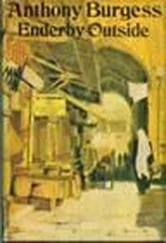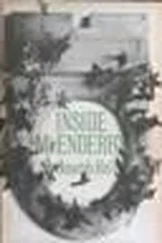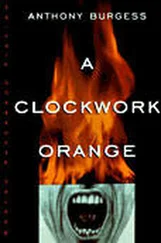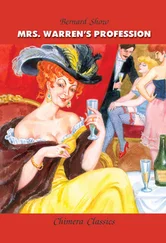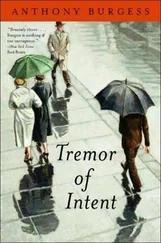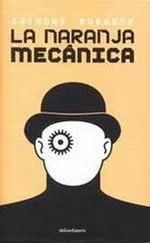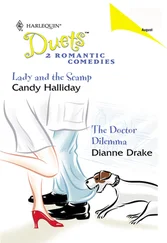The madam knocked loudly on a door at the top of the stairs. "Bess, Bess," she cried. "Here's gold, lass. A cleanly and a pretty man withal." She turned to smile with black teeth at Paley. "Anon will she come. She must deck herself like unto a bride." From the bosom of her nightgown the lily again poked out and Paley thought he saw a blinking eye enfolded in its head. He began to feel the tremors of a very special sort of fear, not a terror of the unknown so much as of the known. He had rendered his flying boat invulnerable; this world could not touch it. Supposing it was possible that this world was in some manner rendered invulnerable by a different process. A voice in his head seemed to say, with great clarity: "Not with impunity may one disturb the." And then the door opened and the girl called Bess appeared, smiling professionally. The madam said, smiling also:
"There then, as pretty a mutton slice as was e'er sauced o'er." And she held out her hand for money. Confused, Paley dipped into his scrip and pulled out a dull-gleaming handful. He told one coin into her hand and she still waited. He told another, then another. "We ha' wine," she said. "Wouldst?" Paley thanked her: no wine. The grey hair on her head grew erect. She mock-curtseyed off.
Paley followed Bess into the bedchamber, on his guard now. The ceiling bent like a pulse; "Piggesnie," Bess croaked, pulling her single garment down from her bosom. The breasts swung and the nipples ogled him. They were, as he had expected, eyes. He nodded in something like satisfaction. There was, of course, no question of going to bed now. "Honeycake," gurgled Bess, and the breast-eyes rolled, the long black lashes swept up and down coquettishly. Paley clutched his scrip tightlier to him. If this distortion – likely, as far as he could judge – were to grow progressively worse – if this scrambling of sense data were a regular barrier against intrusion, why was there not more information about it on Earth? Other time-travellers had ventured forth and come back unharmed and laden with sensible records. Wait, though: had they? How did one know? There was Swenson's mention of Wheeler, jailed in the Middle Ages by chunks of tripodic ectoplasm. "White-haired and gibbering when we got him aboard." Swenson's own words. How about Swenson's own vision of the future – a plaque showing his own birth and death dates? Perhaps the future did not object to intrusion from the past, since it was made of the same substance. But (Paley shook his head as though he were drunk, beating back sense into it) it was not a question of past and future, it was a matter of other worlds existing now. The now-past was completed, the now-future was completed. Perhaps that plaque in Rostron Place, Brighton, showing Swenson's death some thirty years off, perhaps that was an illusion, a device to engender satisfaction rather than fear but still to discourage interference with the pattern. "My time is short," Paley said suddenly, using urgent twenty-third-century phonemes, not Elizabethan ones. "I will give you gold if you will take me to the house of Master Shakespeare."
"Maister -?"
"Shairkespeyr."
Bess, her ears growing larger, stared at Paley with a growing montage of film battle scenes playing away on the wall behind her. "Th'art not that kind. Women tha likes. That see I in tha face."
"This is urgent. This is business. Quick. He lives, I think, in Bishopsgate." He could find out something before the epistemological enemies took over. And then what? Try to live. Keep sane with signals in some quiet spot till a year was past. Signal Swenson, receive his reassurances in reply; perhaps – who knew? – hear from far time-space that he was to be taken home before the scheduled date, instructions from Earth, arrangements changed -
"Thou knowest," Paley said, "what man I mean. Master Shakespeare the player at the Theatre."
"Aye aye." The voice was thickening fast. Paley said to himself: It is up to me to take in what I wish to take in; this girl has no eyes on her breasts, that mouth new-formed under her chin is not really there. Thus checked, the hallucinations wobbled and were pushed back temporarily. But their strength was great. Bess pulled on a simple smock over her nakedness, took a worn cloak from a closet. "Gorled maintwise," she said. Paley pushed like mad; the words unscrambled. "Give me money now," she said. He gave her a portague.
They tiptoed downstairs. Paley tried to look steadily at the pictures in the stairwell, but there was no time to force them into telling of the truth. The stairs caught him off his guard and changed to a primitive escalator. He whipped them back to trembling stairhood. Bess, he was sure, would melt into some monster capable of turning his heart to stone if he let her. Quick. He held the point-of-day in the sky by a great effort. There were a few people in the street. He durst not look on them. "It is far?" he asked. Cocks crowed, many and near, mature cocks.
"Not far." But nothing could be far from anything in this crammed and toppling London. Paley strained to keep his sanity. Sweat dripped from his forehead and a drop caught on the scrip which he hugged to himself like a stomachache. He examined the drop as he walked, stumbling often on the cobbles. A drop of salty water from his pores. Was it of this alien world or of his own? If he cut off his hair and left it lying, if he dunged in that foul jakes there from which a three-headed woman now appeared, would this B303 London reject it, as a human body will reject a grafted kidney? Was it perhaps not a matter of natural law but of some God of the system, a God against Whom, the devil on one's side, one could prevail? Was it God's club rules he was pushing against, not some deeper inbuilt necessity? Anyway, he pushed, and Elizabethan London, in its silver dawn, steadied, rocked, steadied, held. But the strain was terrific.
"Here, sir." She had brought him to a mean door which warned Paley that it was going to turn into water and flow down the cobbles did he not hold its form fast. "Money," she said. But Paley had given enough. He scowled and shook his head. She held out a fist which turned into a winking bearded man's face, threatening with chattering mouth. He raised his own hand, flat, to slap her. She ran off, whimpering, and he turned the raised hand to a fist that knocked. His knock was slow to be answered. He wondered how much longer he could maintain this desperate holding of the world in position. If he slept, what would happen? Would it all dissolve and leave him howling in cold space when he awoke?
"Aye, what is't, then?" It was a misshapen ugly man with a row of bright blinking eyes across his chest, a chest left bare by his buttonless shirt. It was not, it could not be, William Shakespeare. Paley said, wondering at his own ability to enunciate the sounds with such exact care:
"Oi ud see Maister Shairkespeyr." He was surlily shown in, a shoulder-thrust indicating which door he must knock at. This, this, then, at last. It. Paley's heart martelled desperately against his breastbone. He knocked. The door was firm oak, threatening no liquefaction.
"Aye?" A light voice, a pleasant voice, no early morning displeasure in it. Paley gulped and opened the door and went in. Bewildered, he looked about him. A bedchamber, the clothes on the bed in disorder, a table with papers on it, a chair, morning light framed by the tight-shut casement. He went over to the papers; he read the top sheet ("… giue it to him lest he rayse al helle again with his fractuousness"), wondering if perhaps there was a room adjoining whence came that voice. Then he heard that voice again, behind him:
" 'Tis not seemly to read a gentleman's private papers lacking his permission." Paley spun round to see, dancing in the air, a reproduction of the Droeshout portrait of Shakespeare, square in a frame, the lips moving but the eyes unanimated. Paley tried to call but could not. The talking woodcut advanced on him – "Rude, mannerless, or art thou some Privy Council spy?" – and then the straight sides of the frame bulged and bulged, the woodcut features dissolved, and a circle of black lines and spaces tried to grow into a solid body. Paley could do nothing; his paralysis would not even permit him to shut his eyes. The solid body became an animal shape, indescribably gross and ugly – some spiked sea-urchin, very large, nodding and smiling with horrible intelligence. Paley forced it into becoming a more nearly human shape. His heart sank in depression totally untinged by fear to see standing before him a fictional character called "William Shakespeare", an actor acting the part. Why could he not get in touch with the Ding an sich, the Kantian noumenon? But that was the trouble – the thing-in-itself was changed by the observer into whatsoever phenomenon the categories of time and space and sense imposed. He took courage and said:
Читать дальше

